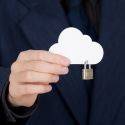Computerware Blog
What can You do to Keep Your Data in the Cloud Safe?
The unfortunate thing about data breaches with Software as a Service (SaaS) providers, is that there's nothing you can do to prevent these companies from getting hacked. Once you hand your sensitive information over to their cloud, it's at the mercy of their security measures. On the plus side, giant companies like Adobe are heavily invested in security and have tight systems in place that you can't afford. On the down side, nobody, not Adobe, Sony, Microsoft, or even world governments, are 100% invincible to hackers.
Although, just because there's nothing you can do about protecting your data from a major hack, doesn't mean you're defenseless. Here are a few commonsense procedures you can enact to help keep your information safe, just in case your cloud provider fails.
Password Management
Keeping track of all your different passwords is a basic component to network security. By taking advantage of password security best practices, you can ensure that if a hacker got their grubby hands on one of your passwords by breaching your cloud provider, then your other passwords and accounts will be protected. Here's some password pro tips to always follow:
- Do not use one password for all your accounts.
- Your passwords should not be easily guessed. Use complex and nonsensical passwords with numbers and characters.
- Take advantage of password storage and encryption services like RoboForm and LastPass.
- Routinely replace your old passwords with new ones.
SaaS Payment Management
You will want to protect your bank account from hackers. You likely pay for your SaaS service with a credit card, which means your credit card information is up for grabs if a hacker has the knowhow to access it. You shouldn't be too shocked by this revelation; after all, you run this risk with every company you give your credit card information to.
One way you can stay one step ahead of the hackers is to use only one credit card for your SaaS bills. You can open a special card just to handle the billing for a specific cloud hosting service and make sure the credit limit is no more than what you will be billed for. This way, if a hacker gets a hold of your credit card number, they will not be able to do anything with it because the credit limit will either be maxed out, or any purchase that doesn't go towards the cloud provider will be instantly flagged. For security reasons like these, it's important to only pay for online bills with credit cards because you will be able to cancel fraudulent purchases instead of having actual money stolen from your account.
By following these best security practices, you can be confident that your company's bank account will be safe in the worst-case scenario like your cloud's data hosting company being breached. To learn about additional best practices that will help keep your hosted data and the data on your in-house servers' safe, call Computerware at (703) 821-8200.


Comments